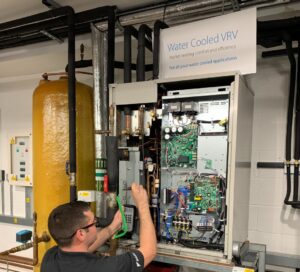Critics of fracking have reacted angrily to the Government’s plans to streamline controversial fracking developments.
The package was announced yesterday (May 17) as part of the Government’s modern industrial strategy, and includes an easing up of the regulation process for shale applications and the setting up of a new planning brokerage service which would focus ‘exclusively on the planning process and will have no role in the consideration or determination of planning applications.’
Also announced was a £1.6m ‘shale support fund’ to build capacity and capability in local authorities dealing with shale applications.
Two Conservative MPs who have constituencies in areas potentially affected by fracking have hit out at the Government’s announcement on Twitter.
Kevin Hollinrake MP tweeted: ‘Have serious concerns about potential new measures on shale gas, particularly permitted development and transfer to national planning system. Have spoken to ministers and will be submitting evidence to consultation and urge others to do same.
Lee Rowley MP tweeted: ‘The Govt is proposing to consult on changes to the planning rules on fracking. Afraid I don’t agree with these proposals and will say so when the consultation opens. Have spoken to Minister briefly this morning and am seeking a fuller meeting with them.
The MPs join campaigners such as Daniel Carey-Dawes, senior infrastructure campaigner at the Campaign to Protect Rural England, who called the announcement ‘an outright assault on local communities’ ability to exercise their democratic rights in influencing fracking applications.
‘It reads like a wish list from the fracking companies themselves,’ he said.
‘The government may want to provide ‘sweeteners’ for communities affected, but nothing will change the fact that this will be a bitter pill to swallow,’
Energy and Clean Growth Minister Claire Perry said: ‘British shale gas has the potential to help lower bills and increase the security of the UK’s energy supply while creatinghigh-qualityy jobs in a cutting-edge sector.
‘This package of measures delivers on our manifesto promise to support shale and it will ensure exploration happens in the most environmentally responsible way while making it easier for companies and local communities to work together.’
















